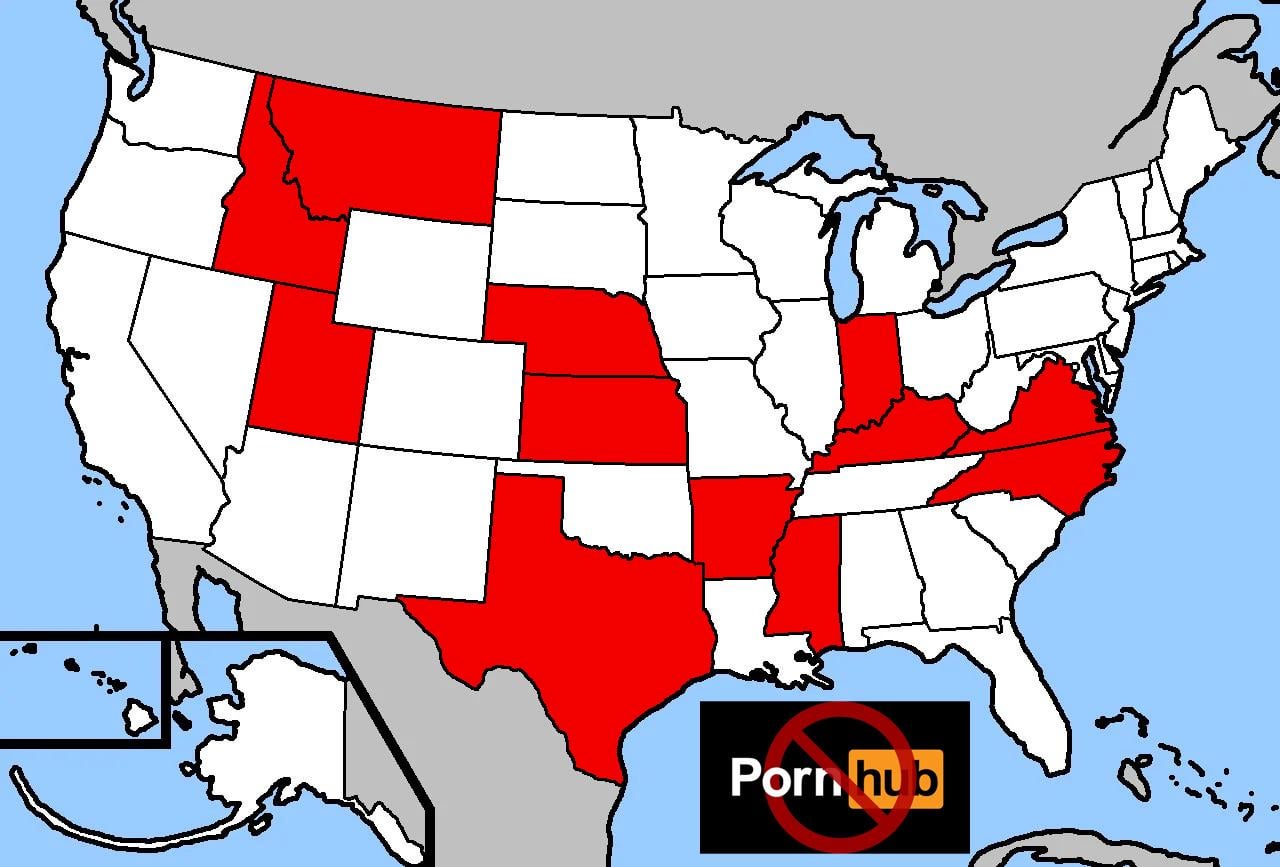Pornhub Blocked In Us States

In recent years, Pornhub, one of the world’s largest adult content platforms, has faced significant legal and regulatory challenges in the United States. Several U.S. states have taken steps to block or restrict access to the site, citing concerns over child sexual abuse material (CSAM), non-consensual content, and other illegal activities. This article explores the reasons behind these actions, the methods used to enforce blocks, and the broader implications for internet regulation and free speech.
The Catalyst for State Actions
The movement to block Pornhub gained momentum in 2020 after a New York Times investigation highlighted the platform’s role in hosting CSAM and non-consensual videos. The article spurred public outrage and prompted lawmakers to take action. Additionally, lawsuits filed against Pornhub’s parent company, MindGeek, alleged that the platform profited from illegal content, further fueling calls for regulation.
States Leading the Charge
Several states have implemented measures to restrict access to Pornhub, often through legislative action or pressure on internet service providers (ISPs). Key states include:
- Utah: In 2021, Utah passed a law requiring pornography websites to verify users’ ages and display a public health warning about the potential harms of porn. Failure to comply resulted in ISPs blocking access to non-compliant sites, including Pornhub.
- Texas: Texas introduced legislation targeting platforms that host CSAM or non-consensual content. Pornhub was among the sites affected, with ISPs urged to restrict access until compliance was achieved.
- Mississippi: Mississippi enacted a law requiring age verification for adult websites, leading to Pornhub being blocked for users who could not verify their age.
- Louisiana: Louisiana passed a similar law mandating age verification, resulting in access restrictions for Pornhub and other adult sites.
Methods of Blocking
States have employed various strategies to block Pornhub:
- Legislative Mandates: Laws requiring age verification or compliance with content moderation standards have forced ISPs to restrict access to non-compliant sites.
- Pressure on ISPs: State authorities have urged ISPs to block access to Pornhub voluntarily, often citing public safety concerns.
- Lawsuits and Settlements: Legal actions against MindGeek have led to settlements requiring the company to implement stricter content moderation policies, indirectly affecting accessibility in certain states.
Expert Insight: "The blocking of Pornhub reflects a growing tension between protecting public safety and upholding free speech. While the intentions behind these actions are commendable, they raise questions about the effectiveness of blanket bans and the potential for overreach in internet regulation."
Arguments for Blocking
Proponents of blocking Pornhub argue that:
- Child Protection: The presence of CSAM on the platform necessitates drastic measures to safeguard minors.
- Combating Non-Consensual Content: Blocking Pornhub helps address the issue of revenge porn and other forms of exploitation.
- Public Health Concerns: Some lawmakers argue that porn addiction and its societal impacts justify restrictive measures.
Pros of Blocking Pornhub
- Reduced Access to Illegal Content: Blocks can limit the spread of CSAM and non-consensual material.
- Increased Accountability: Pressure on platforms encourages better content moderation practices.
- Public Safety: Protects vulnerable populations, including children and victims of exploitation.
Arguments Against Blocking
Critics of these measures contend that:
- Free Speech Concerns: Blocking Pornhub sets a precedent for government censorship of legal content.
- Ineffectiveness: Technical workarounds, such as VPNs, render blocks largely symbolic.
- Overreach: Targeting an entire platform penalizes lawful users and content creators.
Cons of Blocking Pornhub
- Censorship Risks: Blocks can lead to broader restrictions on internet freedom.
- Limited Impact: Determined users can easily bypass restrictions using VPNs or proxy servers.
- Unintended Consequences: Overregulation may stifle innovation and harm legitimate adult content creators.
Broader Implications
The blocking of Pornhub in certain U.S. states highlights broader debates about internet regulation, free speech, and the role of governments in policing online content. It also raises questions about the effectiveness of state-level actions in addressing global issues like CSAM and non-consensual content.
Key Takeaway: While the blocking of Pornhub in certain U.S. states reflects a legitimate concern for public safety, it underscores the need for a balanced approach that addresses illegal content without compromising internet freedom or free speech.
Future Trends
As states continue to grapple with these issues, several trends are likely to emerge:
- Increased Regulation: More states may enact laws requiring age verification or stricter content moderation.
- Technological Solutions: Advances in AI and machine learning could improve platforms’ ability to detect and remove illegal content.
- Global Cooperation: International collaboration may become essential to combat CSAM and other illicit activities effectively.
FAQ Section
Why are states blocking Pornhub?
+States are blocking Pornhub due to concerns over child sexual abuse material (CSAM), non-consensual content, and other illegal activities hosted on the platform.
Can users bypass Pornhub blocks?
+Yes, users can bypass blocks using virtual private networks (VPNs), proxy servers, or other technical workarounds.
What are the alternatives to blocking Pornhub?
+Alternatives include stricter content moderation, age verification systems, and international cooperation to combat illegal content.
Does blocking Pornhub violate free speech?
+Critics argue that blocking Pornhub sets a precedent for government censorship, potentially infringing on free speech rights.
What is the future of internet regulation in the U.S.?
+The future likely includes increased regulation, technological solutions for content moderation, and global cooperation to address online harms.
The blocking of Pornhub in several U.S. states represents a complex intersection of public safety, free speech, and internet regulation. While the intentions behind these actions are clear, their effectiveness and broader implications remain subjects of intense debate. As states continue to navigate these challenges, finding a balance between protection and freedom will be crucial.